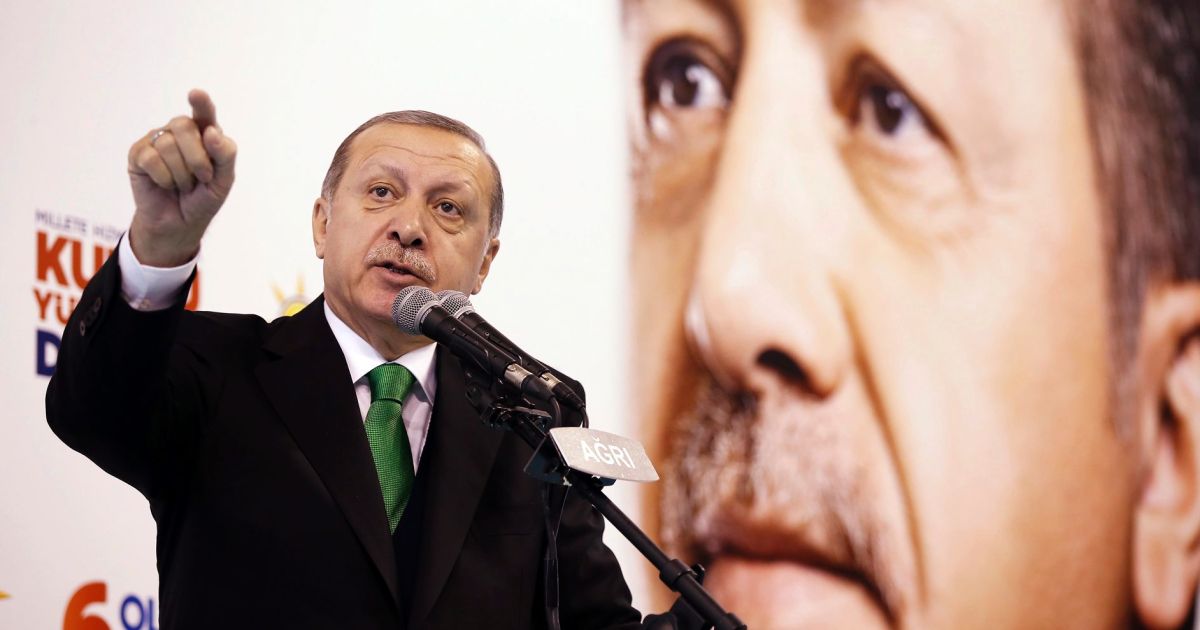Special to WorldTribune.com
Turkey is rapidly developing into a threat to peace and stability in the Middle East.
The regime of President [formerly Prime Minister] Recep Tayyip Erdogan and his AKP Justice and Development Party are increasingly authoritarian. Their effort to obtain nuclear power with its military offshoots would make it an imposing and new threat to the whole region.
Behind Erdogan’s efforts, of course, is nostalgia for Turkey’s once dominant role in that part of the world. The Turkish Empire at its zenith in the early 19th century stretched from the gates of Vienna to Aden to Gibraltar, incorporating most of the eastern Mediterranean. Its collapse in World War I left behind a truncated nationalist state dedicated to linguistic Turks although with considerable racial and ethnic minorities.

Today the Republic of Turkey stretches from the peninsular of Anatolia in Western Asia across the Dardanelles Straits separating the two continents with a smaller portion on the Balkan peninsula in Southeast Europe. It is bordered by eight countries. Some 80 percent of the country’s 80 millions identify themselves as ethnic Turks, with Kurds, altogether a 45-million ethnic minority spread throughout the region, making up another 20 percent of its population. Kurdish nationalists recently have agitated for autonomy against resistance in Ankara,, especially in southeastern Syrian border areas where they are dominant.
Meanwhile, Erdogan announced over the summer that he had signed a deal with Russia’s State Atomic Energy Corporation [ROSATOM] to begin building three nuclear power plants. Since 2001 Ankara has refused investment in its dilapidated conventional power structures largely dependent on imported natural gas. for the country’s inadequate electricity supply.
The $20 billion deal with Moscow, in the works since 2010, involves the construction of the Akkuyu nuclear power plant — Turkey’s first-ever – theoretically to be operational in 2023. Turkey is only the latest to benefit from Russia’s ROSATOM, with Moscow’s earlier nuclear cooperation deals signed with Iran, Jordan and Saudi Arabia. This growing civilian nuclear sales program is generally seen not only as a Moscow play for power in the Middle East but also providing desperately-needed revenue for Russia, hurt by sanctions imposed on Moscow following its invasion of Ukraine.
With the highest rate of growing energy demand among OECD countries over the last 15 years, Turkey has long been looking to the possibility of nuclear power. Prior to the 2015 Teheran and Moscow were Turkey’s main suppliers of fossil fuels for its conventional plants. Pressure to abide by the U.S.’s sanctions against Iran has been one of the factors which has pushed Turkey to consider nuclear energy a viable option to supplement or replace its conventional fossil-fueled industry.
Ankara is looking at China as well as Russia with Beijing having ratified a nuclear agreement it reached with Turkey in 2012, a $20 billion deal for the construction of four nuclear power plants. Although there have been no sales, in 2008 Turkey also reached an”Agreement for Peaceful Nuclear Cooperation” with the United States.
Turkey claims its budding nuclear power program is for civilian purposes only. And while it is true that Ankara’s interest in nuclear energy dates back to the 1960s, when it studied the feasibility of building a 300-400 megawatt nuclear power plant, three decades before the rise of Erdogan and his AKP party, it is clear the program has taken on new significance.
A nuclear power base could easily move on to weapons production and given Erdogan’s pretensions for return to imperial Turkish ambitious, that could be the ultimate outcome of the power program.
Sol W. Sanders, ([email protected]), is a contributing editor for WorldTribune.com and Geostrategy-Direct.com.
Subscribe to Geostrategy-Direct __________ Support Free Press Foundation

